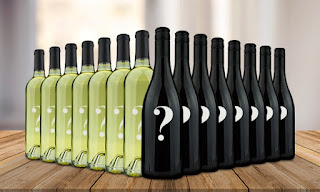 |
| Bound by a NDA, or lying? |
A non-disclosure agreement (NDA) is a legal contract covering confidential information the parties wish to share with each other, but with restrictions on wider sharing. In the whiskey world, when you try to find out who made something, a non-distiller producer (NDP) may tell you that information is confidential because of a NDA? Is the NDP really prevented from revealing the whiskey's source or sources because of a NDA?
Probably not.
By its nature, the use of NDAs in the world of NDPs is tough to research, but the distilleries that provide most of the whiskey bottled by NDPs say they don't require them. In fact, distillers like MGP/Luxco, Tennessee Distilling Group, Bardstown Bourbon Company, and Green River Spirits encourage their NDP customers to tell their customers where the whiskey was made.
Producers who sell into the bulk market, often through brokers, are proud of their products, but also professionally discrete. As business-to-business producers, they consider that information as the customer's, for the customer to reveal or conceal, at the customer's discretion. They won't tell you, except in general terms, who their customers are or what they make for them. In many if not most cases, they don't know what happens to their liquid after it leaves their control so they have nothing to talk about. Their discretion is appropriate.
If most producers don't require NDAs, why do so many NDPs claim to be bound by them?
They're lying.
The only distillers who have much incentive to require NDAs are the majors. If Jim Beam, Jack Daniel's, Wild Turkey, Maker's Mark, or one of the other brand name producers sells some excess whiskey, as they all do, they don't want the buyer to start advertising their 'Jim Beam' bottling. If there is a NDA in such a case, it may not require absolute secrecy. You can, for example, find bottlings of COSTCO's Kirkland Bourbon that say 'Clermont, Kentucky' on them. That is obviously Jim Beam liquid, but they're not using the Jim Beam name. No doubt, Beam-Suntory's purchase agreement with the broker who ultimately sold the whiskey to COSTCO contained some non-disclosure wording.
Does that mean we should always interpret a NDP-NDA claim as indication of a major producer source? Dave Pickerell, when he was first promoting WhistlePig, claimed a NDA prevented him from revealing the name of the Canadian distillery that made it (Alberta) even as he told you who it was with a wink and a nudge. He was bound by a NDA and he honored it, but it was more about discretion than secrecy.
These days, although all of the majors occasionally offload surplus liquid, usually with some level of disclosure restriction, it's a drop in the NDP bucket. You may safely assume 90 percent or more of the NDP whiskey in the market is not bound by any kind of NDA. The claim of a NDA is almost always for the NDP's interest and convenience.
Why? Because we still have too many NDPs who try to pretend they're makers, not fakers. When you point out they don't have a distillery, they feed you some double-talk about "cooking in someone else's kitchen."
So while some NDA claims are true, most are not, and the most adamant are the least likely to be true. Regard the claimants accordingly. If they are keeping their sources a deep, dark secret, there is a reason. The secret the NDP is protecting is the NDP's, not the producer's.
Consider also NDPs who always reveal their sources. Ever wonder how they are able to avoid those dreaded NDAs?



2 comments:
Thanks for confirming what I have always suspected.
Great stuff, Chuck!
Post a Comment